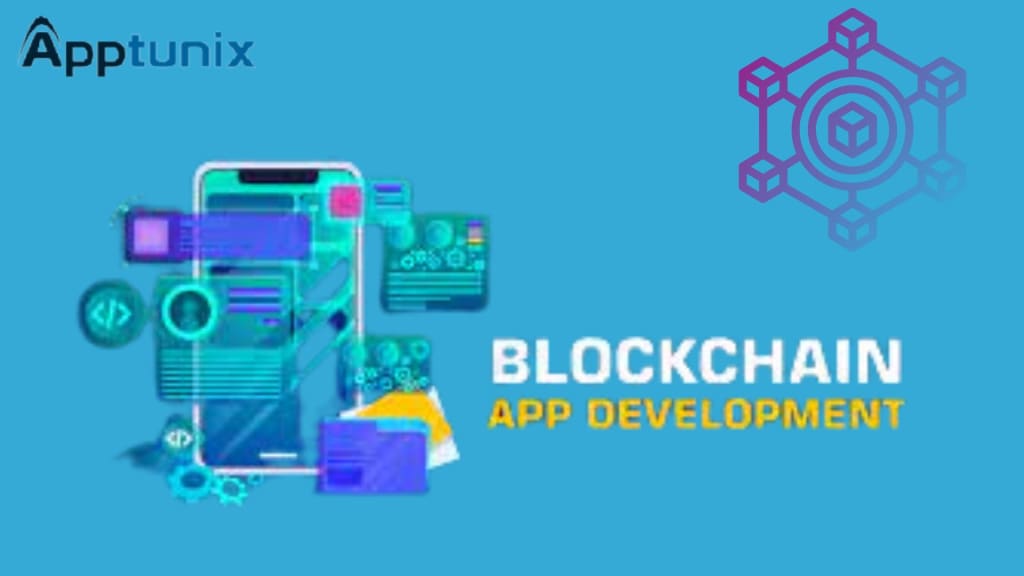A Condensed Guide To Blockchain App Development
Blockchain app development

For several years now, blockchain has been the hottest topic on news channels, social media platforms, and office group discussions. And there's no sign that the buzz surrounding blockchain and cryptocurrencies will abate anytime soon. As a result, we've created this blockchain app development guide to assist you with all of the technology's major technical and business aspects.
News about blockchain technology is becoming incredibly popular, with both supporters and detractors, along with its apps and blockchain development tools. As a result, even a regular company that modifies its name and operating principles to fit the blockchain hype will see increased profits.
Technology behind blockchain
The first step in figuring out How to design a Blockchain application is to define what it even is. In plain English, blockchain is a decentralized, transparent, immutable, and openly accessible database where digital data (transactional records) is stored in blocks and is paired to each other with a hash function so that the current block has the hash code of the previous entry and the next block will have the hash code of the current block.
It functions as a peer-to-peer value exchange network on the business side. It is a system that, without the need of middlemen, authorizes a transaction and renders it legally acceptable.
Software Development Platforms for Blockchain
Despite the fact that there are more than 25 platforms for developing blockchain solutions, the following major platforms are frequently taken into consideration for blockchain/DLT development:
Ethereum: It is a public platform (and operating system) that is taken into account for the creation of blockchain-based dApps and initial coin offerings (ICOs) with smart-contract functionality. Every blockchain app development company starts with it when creating a blockchain app because, unlike bitcoin, it is flexible and adaptable.
EOS: The EOS platform's goal is to provide enterprise solutions with decentralized storage, smart contract functionality, and decentralized application hosting that addresses scalability difficulties with Blockchains like Ethereum and Bitcoin and does away with all user fees.
Multichain: It is a platform that enables developers of blockchain applications to produce and make use of personal blockchain solutions for use within or between different businesses.
Liquid Apps: To make the platform far more adaptable and potent, the company behind DAPP Network just released DSP 2.0. They are able to support the building of various dApps.
Hyperledger: It is an open-source framework for producing cutting-edge blockchain programming solutions. As an illustration, developing IoT-based blockchain solutions and supply chain management apps.
Considerations For The Development Of Blockchain Applications
Kind of Platform:
While some blockchain platforms use cryptocurrencies as their foundation, others rely on smart contracts or use multiple cryptocurrency tokens. The creation of Blockchain applications would be simpler if you can decide which type is best for you.
A smart contract:
Determining whether or not you require a smart contract is the second issue that needs your attention. You may already be familiar with the concept of a smart contract, which is a self-executing protocol that processes, verifies, or enforces any trigger-based action stored on the blockchain system.
Accord Protocol:
As for the consensus protocols used by various blockchain development platforms, they include Proof of Work, Proof of Stake, Proof of Elapsed Time, Proof of Burn, etc. So selecting the appropriate platform based on the consensus procedure is also advantageous.
Cryptocurrency:
The second factor you should take into account when asking How to design a Blockchain app is whether or not you require the use of cryptocurrencies in your mobile application. This factor is crucial in determining the best platform.
How Can Blockchain Be Applied To Different Business Processes?
You must be eager to incorporate blockchain technology applications into your organization now that you are aware of the blockchain's technological landscape. Have a strategy in place or are you still unsure about how to transform your business profitably using blockchain?
With its unmatched potential, blockchain may be integrated into your current business processes in a number of ways, including:
As for Transactions
Blockchain technology, the foundation of Bitcoin and other cryptocurrencies, is ready to revolutionize trade. The procedure will move more quickly without middlemen present, and a secure, inexpensive fund transfer service will be made possible. Companies like Bitwage, Abra, and Coinpip are using the blockchain for fund transfers and managing payrolls as examples of real-world use cases.
Considering Distributed Cloud Storage
Like Storj did, you can leverage blockchain to provide your consumers with faster, more convenient, and secure cloud storage options. You would need to choose a reputable BaaS provider for the same.
Regarding Smart Contracts
Smart contracts can be used to get around rules and lower the cost for a portion of many different financial transactions. The nicest feature about these contracts is that they are reliable and unbreakable.
For Notarial Use
The formation and authentication of notaries can both benefit from blockchain development. Here are a few examples from actual life: A smartphone multimedia application called Uproov offers notary creation services utilizing user-uploaded images, videos, or audio files that are exchanged over blockchain.
To control the supply chain
Since different entities interchange components along the supply chain, a failure at one end might have an impact on the entire operation. Blockchain technology can be applied to this situation to create secure, permanent auditable records that allow all parties involved to see the entire processing. Looking for some examples of real-world use? Two such businesses using blockchain to streamline the supply chain system are SkuChain and Provenance.
Lasting Thoughts
This article about creating blockchain applications is intended to be helpful.
You must have begun drafting your own blockchain app development idea after reading the facts and examples above. Did you? We would be delighted to hear about and support your proposal. Let's get together and talk!
Prepare to incorporate the modifications into your app development plans and consult Apptunix, a reputable business that specializes in Blockchain development. a business that could aid in the growth of your decentralized journey.
About the Creator
Sophia Ash
We promise to deliver promising technology that ensures to rewire the global economy for shared notes. Join our forward-thinking doers to shape new values in your industry.






Comments
There are no comments for this story
Be the first to respond and start the conversation.